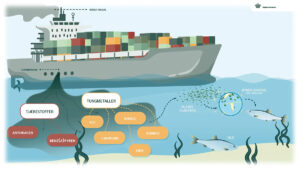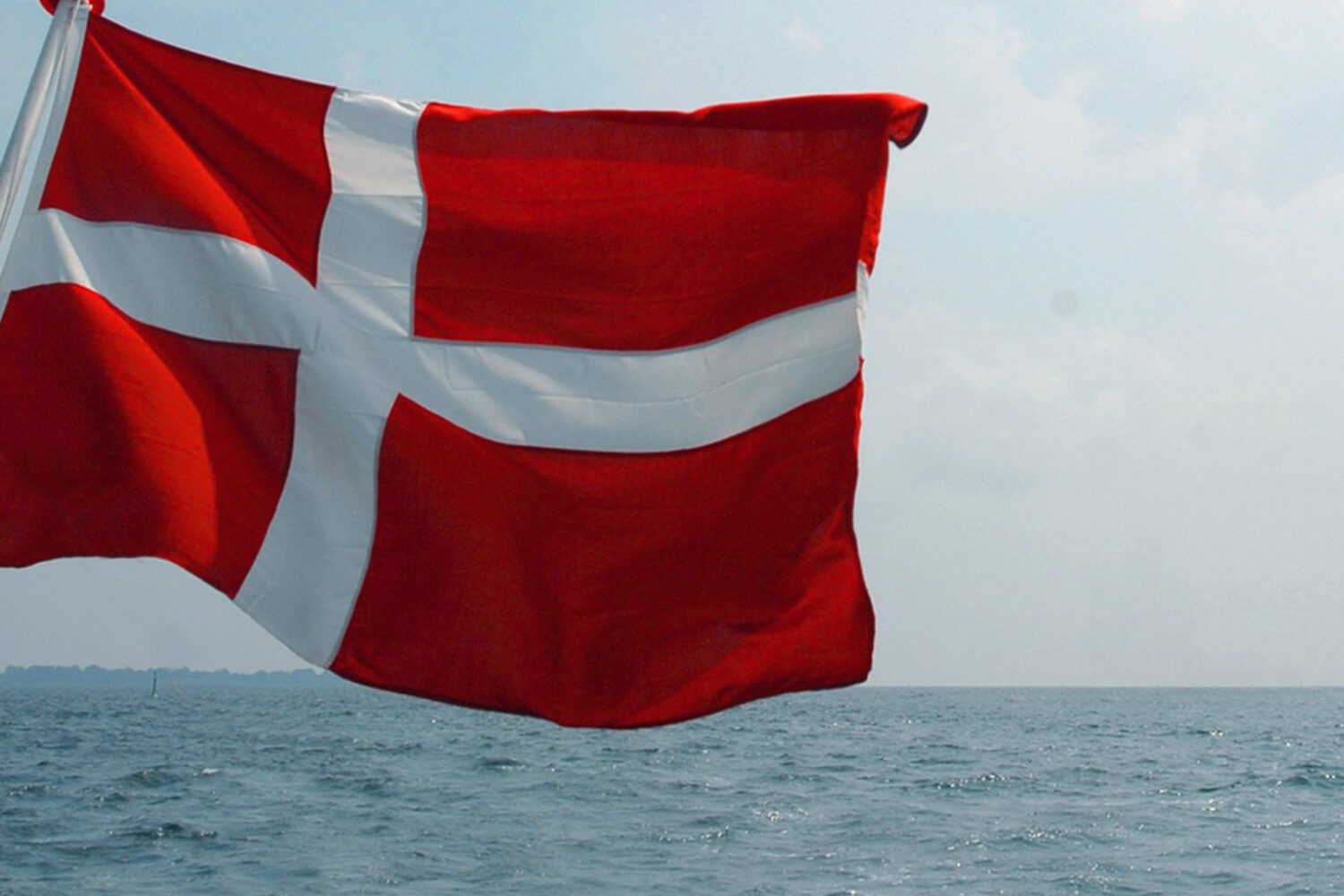The Danish government has decided to ban the discharge of scrubber wash water into Danish territorial waters.
From 1 July 2025, the discharge of scrubber wastewater from ships up to a distance of 12 nm from Danish coasts will be prohibited by law. This is the content of a new political agreement concluded today by the government and the parties SF, LA, DD, K, EL, RV and ALT in a “broad political agreement”. [ds_preview]
Ships can use scrubbers to remove sulphur from the exhaust gases resulting from the combustion of heavy fuel oil. The sulphur is washed out of the smoke and in so-called open-loop systems, the scrubber wastewater is then discharged directly into the sea. According to the Danish Ministry of the Environment, this has contributed to excessive concentrations of a number of heavy metals and tar substances such as lead, cadmium, anthracene and benz(a)pyrene in the marine environment. Scrubber water is, therefore, a significant source of environmentally hazardous substances in the marine environment. The agreement could reduce the input of nickel into the marine environment by up to 20% and the input of anthracene by 7%.

The scrubber water contains a number of problematic substances that accumulate on the seabed and ultimately end up in the food chain. “The discharge of environmentally hazardous substances comes from many different sources, but scrubber water is a source about which we have a lot of knowledge and data, and I am therefore pleased that we are now putting an end to pollution from scrubber water in Danish waters,” says Environment Minister Magnus Heunicke.
Denmark also wants to regulate scrubber wastewater via HELROM and OSPAR
The sea area up to 12 nm corresponds to the sea area that can be regulated nationally in accordance with the Convention on the Law of the Sea. The sea area outside the 12-mile zone is subject to international law. The agreement states that Denmark must advocate a similar ban in the Baltic and North Sea within the framework of the regional maritime conventions HELCOM and OSPAR in order to achieve regulation under the auspices of the IMO.
In Danish waters, ships will have to switch to using either low-sulphur fuel or closed-loop scrubbers in the future. This means that the residual product from the closed exhaust gas scrubber cycle must be discharged into collection facilities in the ports. The ban comes into force on 1 July 2025, for ships with scrubbers in open-loop operation, where the scrubber water is discharged into the sea. For ships with scrubbers in closed operation, the discharge ban comes into force on 1 July 2029.
Danish shipowners call for “thorough enforcement”
The Danish Shipowners’ Association Danske Rederier recognises the ban and calls for “thorough enforcement”. Nina Porst, Director of Climate, Environment and Safety, says: “I am pleased that the politicians have listened to our request for a reasonable transition period so that the shipping companies, which have invested a lot of money in complying with the regulations and reducing their sulphur emissions, are satisfied”
“We will, of course, comply with the new rules and that is why it is also important to us that the ban is accompanied by a plan that ensures robust enforcement. If this is not the case, it could put some Danish shipping companies at a disadvantage compared to their foreign competitors,” says Porst.
In 2015, the so-called SECA (Sulphur Emission Control Area) rules were introduced in the North Sea and Baltic Sea, which meant that ships were only allowed to sail with fuel containing 0.1% sulphur if they did not have a scrubber on board. In 2020, the UN Maritime Organization IMO introduced globally applicable rules (known as IMO 2020), according to which ships were only allowed to sail with fuel containing 0.5% sulphur if they did not have a scrubber on board. As a result, scrubber technology became widespread in the shipping industry.













